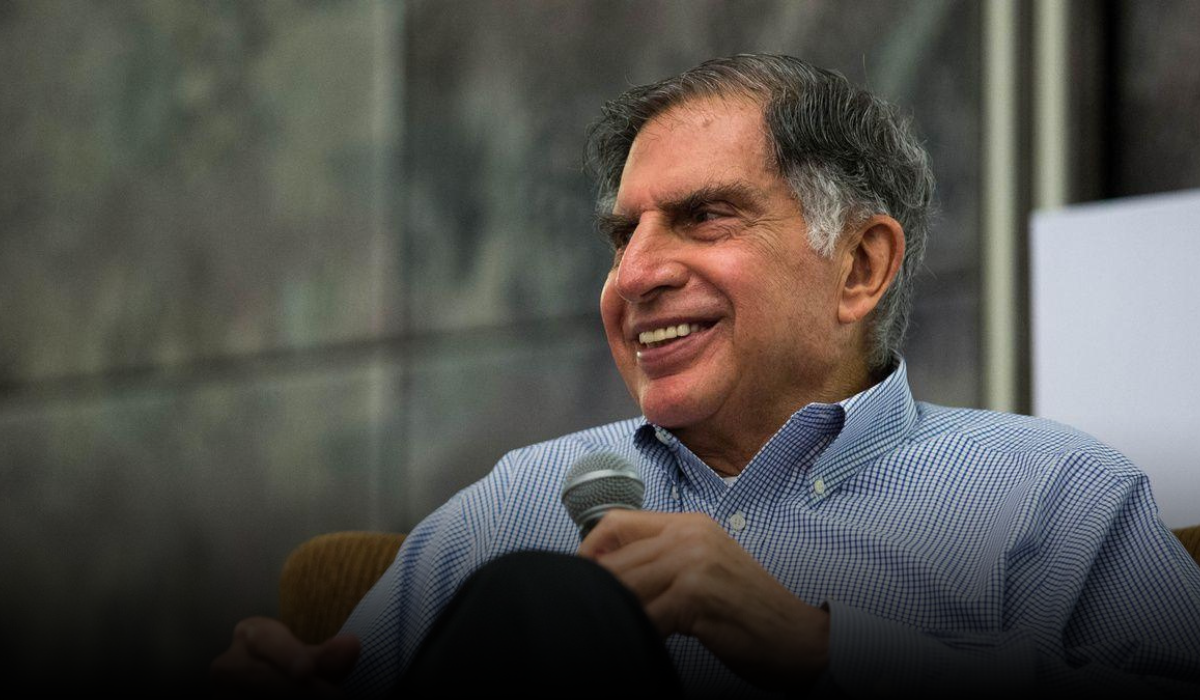On October 9, 2024, the world bid farewell to Ratan Naval Tata, an industrial titan whose vision transformed India’s Tata Group into a global powerhouse. His life, marked by extraordinary achievements in business and philanthropy, made him one of the most respected figures in India and abroad. Beyond his corporate success, Tata’s journey included remarkable personal resilience, a relentless pursuit of excellence, and a deep commitment to improving the lives of millions through his philanthropic initiatives.
Early Life and Rise in Tata Group
Ratan Tata was born on December 28, 1937, in Mumbai, into one of the most powerful corporate families in India. He graduated from Cornell University with a degree in architecture before joining the Tata Group in 1961. His early career saw him working on the shop floor of Tata Steel, a unique experience for someone destined to lead the company.
In 1991, Ratan Tata succeeded J.R.D. Tata as the chairman of Tata Sons. The Tata Group at the time consisted primarily of businesses with an emphasis on India. Under his stewardship, Tata transformed the conglomerate into a global giant, known for major acquisitions and innovative projects.
Global Acquisitions: A Legacy of Visionary Leadership
One of Tata’s greatest accomplishments was growing the Tata Group through well-timed acquisitions that established the business as a major player in the world economy. His acquisition of Tetley Tea in 2000, followed by Corus Steel in 2007, were landmark deals that signaled India’s arrival on the global business stage. However, the 2008 purchase of Jaguar Land Rover (JLR) is arguably his most famous deal. This acquisition, for $2.3 billion, not only revived the two iconic brands but also demonstrated Tata’s belief in turning struggling assets into global successes.
The Ford Controversy: A Story of Turnaround
One of the most legendary tales of Ratan Tata’s career is linked with the Ford Motor Company with which he had an interaction. In the year 1999, Tata Motors was not really so successful in turning the passenger car business around, particularly its Indica model. Tata Motors entered talks with Ford to sell its car division. During the negotiation in Detroit, Ford’s executives reportedly humiliated Tata, with one even commenting that Ford was doing Tata a favor by buying the struggling unit.
The deal didn’t go through, and Tata returned to India. This event, however, served as a turning point for Tata Motors. Just nine years later, in a stunning reversal of fortunes, Tata acquired Jaguar Land Rover from Ford for $2.3 billion. The deal was not only financially successful but also a vindication for Tata. Jaguar Land Rover quickly returned to profitability under Tata’s ownership, becoming a core part of the group’s automotive portfolio.
Innovation and Philanthropy: Hallmarks of His Leadership
Ratan Tata was not just a business leader; he was a man with a deep social conscience. His personal wealth was always secondary to the well-being of society. Tata donated more than 60% of his earnings to charity through the Tata Trusts, funding education, healthcare, and rural development. He became well-known throughout the world as one of the top philanthropists as a result of this dedication.
In terms of innovation, Tata also led the team that created the Tata Nano, the most reasonably priced vehicle ever, with the goal of enabling millions of Indians to buy a car. Though the Nano did not achieve the commercial success expected, it embodied Tata’s mission to democratize technology and opportunity.
Controversies and the Mistry Battle
Despite his stellar reputation, Tata’s career was not without controversy. After stepping down as chairman of Tata Sons in 2012, Tata found himself embroiled in a boardroom battle with his successor, Cyrus Mistry, in 2016. Unexpectedly, the board ousted Mistry, and Ratan Tata took over as chairman in an acting capacity. The legal and public fallout from this decision led to a prolonged legal battle, and Mistry accused Tata of poor corporate governance. The Indian courts ultimately ruled in favor of Tata, but the episode highlighted the tensions within the conglomerate during its transition of power.
A Legacy of Humility and Global Leadership
Ratan Tata leaves behind a towering legacy not only in business but also in humility and leadership. He was awarded the Padma Vibhushan and Padma Bhushan for his contributions to industry and philanthropy. While he never married or had children, Tata’s enduring legacy is the ethical and global footprint he leaves behind through the Tata Group.
As N. Chandrasekaran, chairman of Tata Sons said in a tribute, “Ratan Tata was more than a chairperson, he was a mentor, guide, and a leader whose immeasurable contributions will continue to inspire us all.” His body of work will serve as a living legacy of how to successfully balance social duty with financial success.
Ratan Tata’s story, particularly his resolve during the Ford episode and his later triumph in acquiring JLR, serves as a reminder that setbacks can become stepping stones to greatness. His profound legacy will inspire future generations of leaders, not just in India, but around the world.
Final Days: Hospitalization and Passing
Since Ratan Tata’s health had been a source of concern in recent years, many were taken aback when he was admitted to Mumbai’s Breach Candy Hospital in early October 2024. His condition worsened rapidly, and despite receiving the best medical care, Tata passed away on October 9.
N. Chandrasekaran, the chairman of Tata Sons, expressed profound grief at Tata’s passing, calling him not just a leader but a mentor and a guiding light for the Tata family and millions across the globe. The age of India and the business world as a whole came to an end when he went away. Many high-profile figures, including India’s Prime Minister Narendra Modi, expressed deep condolences, calling Tata a “visionary leader” and highlighting his contributions to India’s business and societal development.








